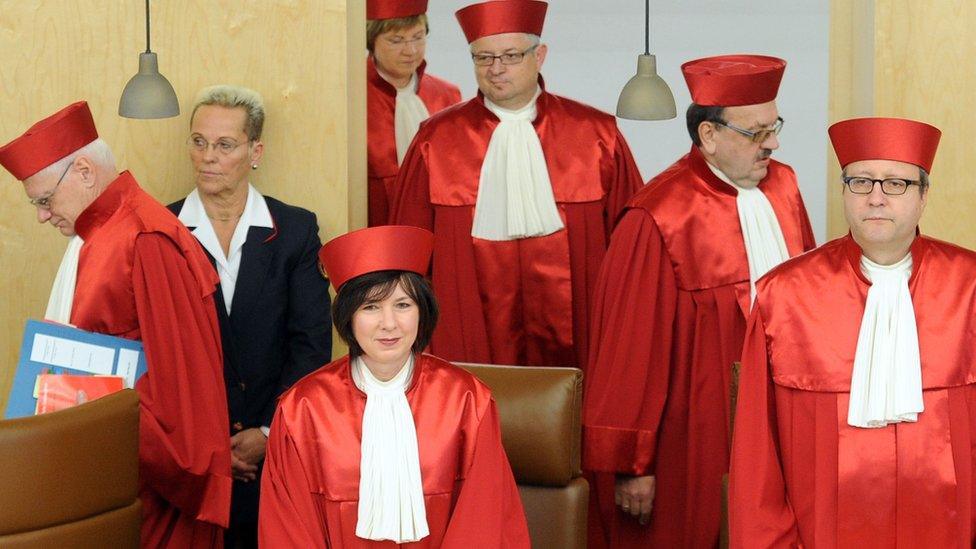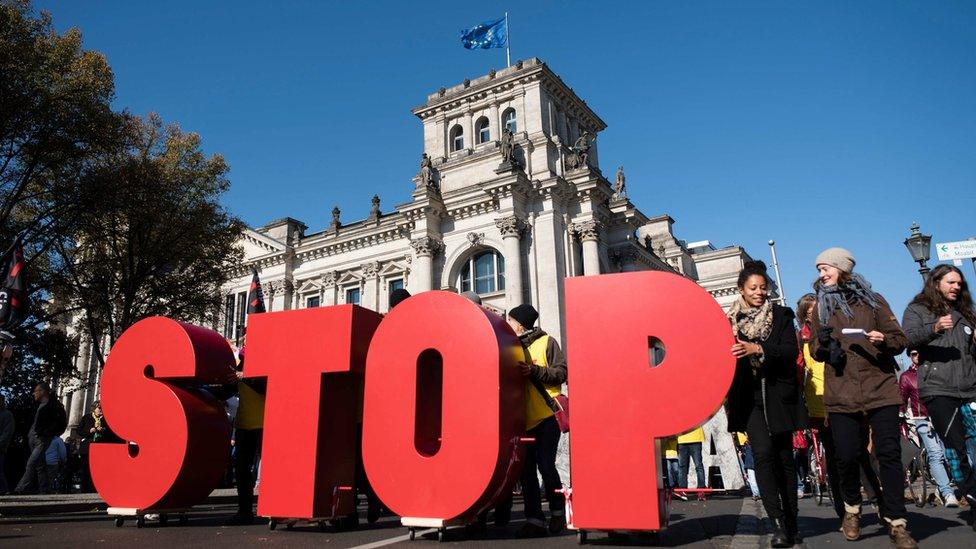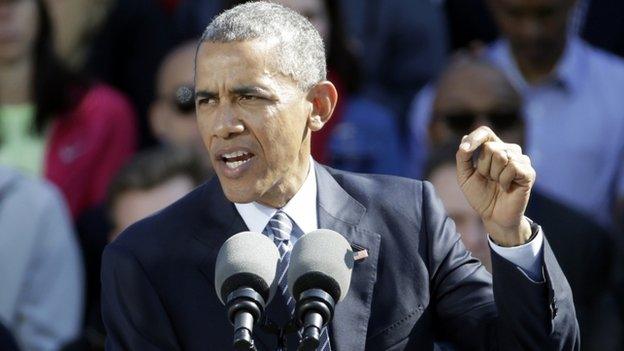TTIP trade talks: German judges oppose new investor courts
- Published

The German Constitutional Court has a record of challenging aspects of EU law
German judges have objected to a new court system for investors to sue governments, which would be set up as part of an EU-US trade deal.
The German Association of Judges (DRB) said there was "neither a legal basis nor an actual need for such a court".
But in response the European Commission said the Investment Court System (ICS) would not affect national or EU law.
The role of commercial courts is one of the thorniest issues in the EU-US trade negotiations, known as TTIP.
There are fears that big firms could put excessive legal pressure on states.
The Commission abandoned the idea of using existing arbitration courts, called Investor-State Dispute Settlement (ISDS), because of the accusation that powerful multinationals use them to force changes in public policy.
Rejecting the German judges' criticisms, a Commission trade spokesman told the BBC that the new ICS plan, external was based on input from parliaments in the EU and other stakeholders.
"The ICS only rules on matters of international law, contained in the agreement. It does not rule on member state law or EU law, and hence the ICS in no way alters the established court system within the EU," spokesman Joseph Waldstein said.
He said ICS proceedings would be transparent, with fully qualified judges and a right to appeal.
National and EU laws offer more protections for investors, he said, so they would be "unlikely to need to go to the ICS system".

EU Trade Commissioner Cecilia Malmstroem is steering the TTIP talks with the US
TTIP deal by summer?
TTIP stands for Transatlantic Trade and Investment Partnership. The Commission hopes to complete the wide-ranging talks by the summer, to avoid the disruption of the US presidential election.
The thorny issue of trade arbitration will be on the agenda of EU-US talks later this month.
There is widespread concern about the "chilling" effect that company lawsuits can have on governments trying to legislate on public health or the environment.
Critics point to the example of tobacco giant Philip Morris, which sued the authorities in Australia and Uruguay over plain cigarette packaging.
According to Mr Waldstein, the new ICS courts will "protect" - not undermine - governments' right to regulate.
Wide legal powers
Germany's DRB - representing 16,000 judges and prosecutors - said (in German), external that "creating special courts for certain groups of litigants" would be a mistake.
The proposed ICS would limit the legal powers of EU member states and change national court systems, the DRB statement said.
The Commission's proposal would mean ICS jurisdiction that "extends from civil law through to general administrative law and social and tax legislation", the judges complained.
They also questioned the legal criteria for appointing judges to the ICS courts, saying specialists in trade disputes would have an unfair advantage.
Nearly 3.3 million people have signed an online petition against the proposed trade deal, on the Stop TTIP website, external.
The Commission and many politicians argue that TTIP would bring major benefits for the US and Europe, creating new jobs and business opportunities.
A study by the Centre for Economic Policy Research (CEPR) estimated the potential gains for the EU as up to €119bn (£91.5bn; $133bn) a year and €95bn for the US.
- Published13 November 2015

- Published11 October 2015

- Published13 May 2015

- Published10 June 2015
